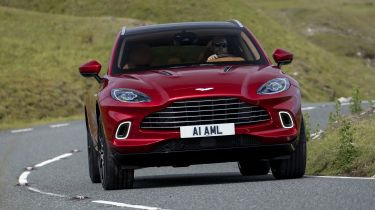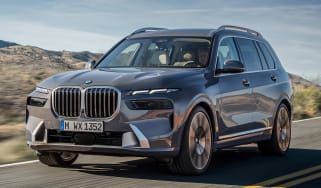Aston Martin DBX - MPG, CO2 and running costs
You’ll need deep pockets if you’re going to run a super-SUV like the Aston Martin DBX

The Aston Martin DBX has a starting price of around £180,000, but as with its Lamborghini Urus rival, that’s just the start. There’s an array of accessory packs and optional equipment to choose from, and Aston Martin’s Q Division is also on hand to personalise your DBX down to the last detail. Buyers should expect that even with just a few choice options ticked, the price could easily reach £200,000 or more.
The mounting cost of DBX ownership continues when you factor in that the claimed fuel economy is just 19.8mpg on the combined cycle. Anyone choosing to exploit the power on offer from the two-tonne SUV may see this fall to single figures. Still, with a light right foot, you might be able to eke out around 370 miles from the 85-litre tank. Emissions are unsurprisingly high at 323g/km, so don’t expect to beat any city congestion charges when driving a DBX.
You’ll also need to consider the premium servicing costs involved in running a bespoke, British-built luxury SUV, and the expensive consumables like tyres and brake pads. All of these will need regular attention if you intend to drive the DBX to its full potential.
Insurance groups
There’s a definite theme to the ownership of an Aston Martin DBX – it’s expensive. The SUV sits in the highest group 50 for insurance, as do all of its rivals, so expect costly premiums.
Depreciation
As a fairly low-volume car, the DBX performs reasonably well on the used market in terms of resale values. However, Aston Martin ownership starts with a high list price and encourages you to add expensive options, so you’ll still probably be looking at a hefty chunk of money lost. Our expert data suggest that the DBX should retain around 61 per cent of its initial value after three years and 36,000 miles.
To get an accurate valuation on a specific model check out our valuation tool...








